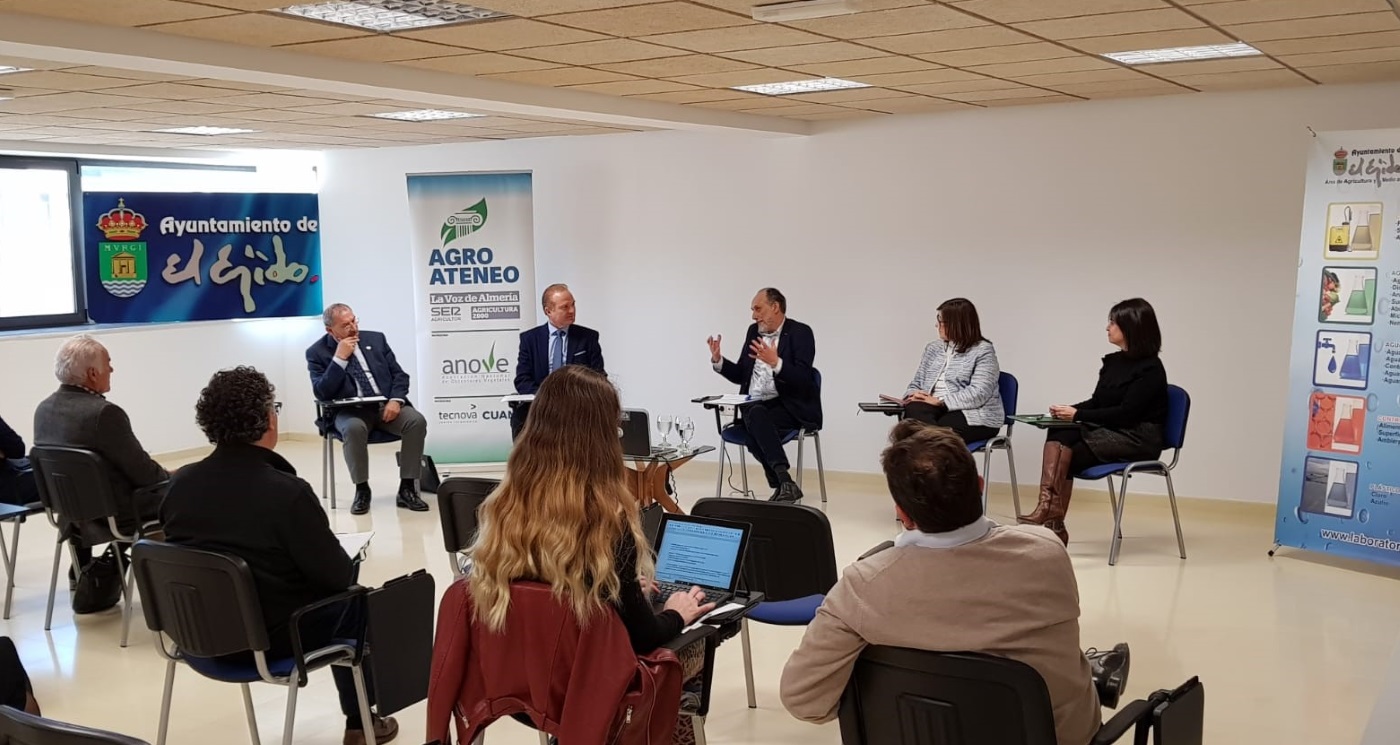Seipasa, the Spanish company specializing in the development and formulation of biopesticides, biostimulants and fertilizers for agriculture, joined the 7th edition of Agroateneo, the public debate organised by La Voz de Almería and Cadena SER to analyse the future of Almeria's agricultural model. Under the title ‘Europe, an agrifood space’, this forum brought together 4 experts with the aim of analysing the impact of the European policy on agriculture in Almeria.
Noelia Vera, representative of the regulatory department of Seipasa; Elena Sáenz, director of Anove; Francisco Góngora, president of Hortiespaña, and Diego Luis Valera, vice-rector of research, development and innovation of the University of Almeria participated as invited expert speakers in a session led and moderated by Jacinto Castillo, director of Agricultura 2000.
The debate served to bring different several points of view (from the fruit and vegetable sector, the seed production sector, the R&D sector and the fertiliser sector) with the aim of establishing similarities and divergences in the perception of the European Union's guidelines on agri-food matters.
The speakers agreed that, despite the existence of an European economic policy, this is not transferred in the same way to all member states so that, except in the case of R&D, there is a clear feeling that Europe is still very far from a common policy and a single market.
Regulatory complexity
Aspects such as sustainability, the circular economy, competitiveness and food quality, barriers to foreign markets and the consequences of Brexit were discussed from different points of view.
The experts insisted on the complexity of the regulations and highlighted the lack of harmonisation between the different member states in practically all areas. In this sense, the participanys underlined the EU's lack of attention to diversity and set examples on how different is the reality between each of the member states.
The conclusions also focused on the difference in speed at which scientific knowledge and regulation are advancing which, according to experts, is restricting the positioning of new initiatives within the European market.


